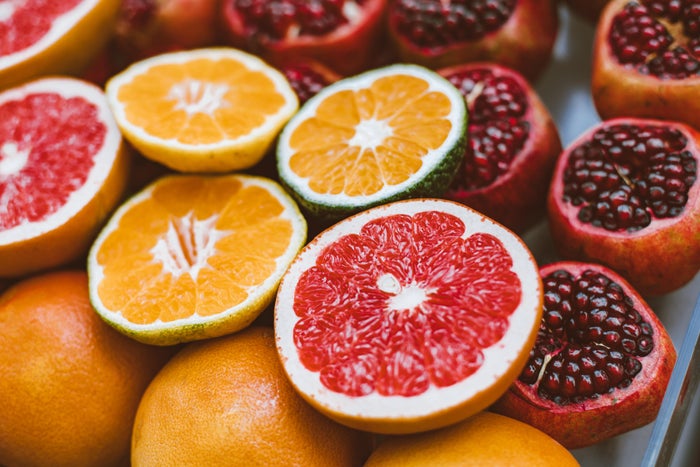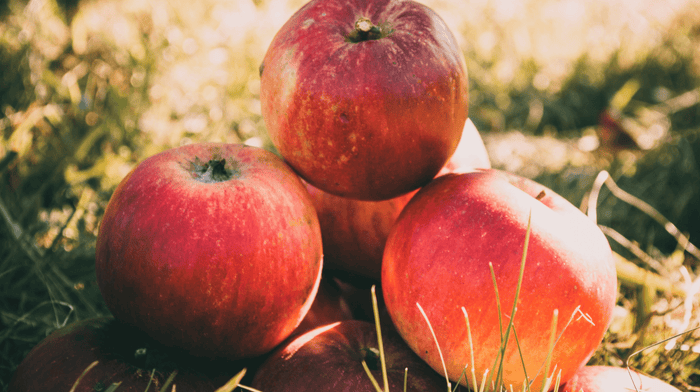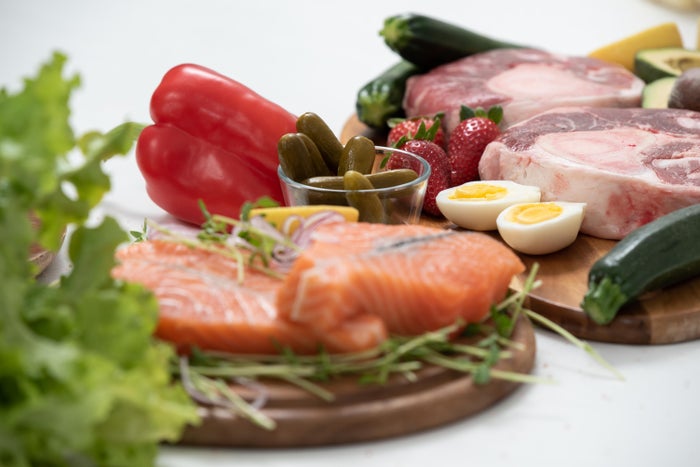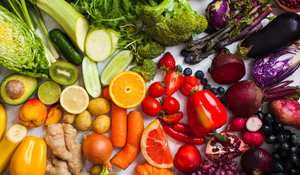Did you know that vitamins play an important role to maintain your immune function which helps to defend your body against illness and infections? The majority of vitamins can be obtained through our diet. We’ve listed the top 5 important vitamins and minerals below for you:
1. Vitamin C
Vitamin C has long been considered a go-to nutrient for many people because of its different important health benefits. Not only does it help maintain the formation of blood vessels, cartilage and collagen, but also supports keeping our immune system healthy and boosts iron absorption.

Adults should take 80 mg daily for both men and women according to the British Nutrition Foundation. The best sources of vitamin C are fruits, such as citrus fruits, berries, papaya and kiwi, and vegetables such as dark leafy greens, white potatoes and bell peppers. However, the best way to preserve vitamin C is by eating raw where possible or cooking for a short time as heat and light can cause nutrient loss.
2. Vitamin A
Evidence shows that vitamin A is an essential vitamin that contributes to the normal function of the immune system. It also plays an important role in maintaining our vision and skin.
Vitamin A comes in two forms: preformed vitamin A (retinol) and provitamin A (carotenoids such as beta-carotene). While preformed vitamin A can be found in oily fish, meat and dairy, provitamin A comes from vegetables such as leafy green vegetables, orange and yellow plants (pumpkin, mango, carrot, apple, etc).

3. Vitamin B6
Pyridoxine acid, or vitamin B6, is a water-soluble vitamin that affects different systems in our body, such as psychological function, blood cell formulation and metabolism. Vitamin B6 supports the body to create haemoglobin in red blood cells, which transport oxygen around the body. Moreover, this crucial vitamin is known to maintain a healthy immune system.
Eating foods rich in vitamin B6 would be beneficial for your physical and mental health. Vitamin B6 is required in small quantities and is easy to obtain through a variety of food sources, including lentils, seeds, organ meats (liver, kidney), avocados, brown rice, or poultry.
4. Vitamin D3
Vitamin D3 (cholecalciferol) is one of two forms of vitamin D, which is produced by the body in response to sunlight. Vitamin D3 contributes to maintaining bone health, muscle function and immune system function.
Sunshine is an efficient way to get vitamin D, however, you can still increase vitamin D3 intake through your diet. D3 comes from animal sources, which are found in a variety of foods including fish, dairy, and breakfast cereal.
During autumn and winter, the sunlight might not be strong enough for your body to create vitamin D3, hence, the NHS recommends everyone considers taking a vitamin D supplement every day to ensure a sufficient daily intake.
5. Zinc
Zinc is proven to support both innate and adaptive immune cells. It also has multiple contributions to the synthesis of DNA, cell division, and maintenance of normal testosterone levels in the blood.
The British Nutrition Foundation recommends that adults should have 10 mg of zinc daily. Good sources of zinc include meats, seafood (lobster, oyster), dairy products and poultry.

Ensuring your diet is varied and balanced through a different range of foods is the best way to enhance your vitamin and mineral intake.
While it is preferable to obtain these vitamins and minerals via food consumption, some people may have conditions that require vitamin supplementation along with their daily diet. For immunity support, you could consider the vitamins & minerals listed above or immunity supplements, in addition to eating a healthy diet. Be sure to consult your GP to get more information on supplements that suit you.
References
1. British Nutrition Foundation, Vitamins and minerals in a healthy diet, https://www.nutrition.org.uk/healthy-sustainable-diets/vitamins-and-minerals/?level=Consumer
2. Carr, Anitra C., and Silvia Maggini. “Vitamin C and immune function.” Nutrients 9.11 (2017): 1211.
3. Mora, J.R., Iwata, M. and Von Andrian, U.H., 2008. Vitamin effects on the immune system: vitamins A and D take centre stage. Nature reviews immunology, 8(9), pp.685-698. 4. NHS, Vitamin C https://www.nhs.uk/conditions/vitamins-and-minerals/vitamin-c/ 5. NHS, Others – Vitamins and minerals https://www.nhs.uk/conditions/vitamins-and-minerals/others/
6. Team, I., Supporting your immune system with vitamins. https://www.inessawellness.com/blogs/wellness-hub/boosting-your-immune-system-with-vitamins








